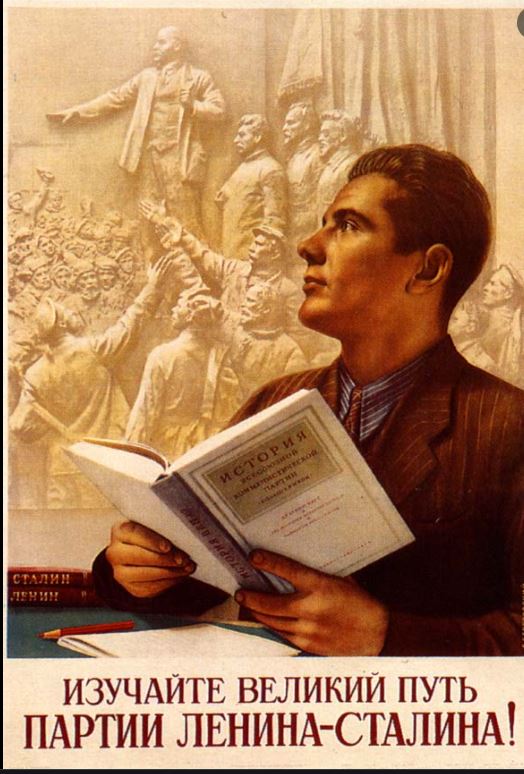In the 1920’s, Communists in Russia predicted that their complete control of society and education of children would change human character and create a “New Soviet (Socialist) Person” (Novy Sovetsky Chelovek). This New Socialist Person would be:
“Selfless, educated, healthy, strong, and enthusiastic in spreading the socialist revolution. He or she would not be driven by crude impulses of nature, but by conscious self-mastery. He or she would treat public property with respect, as if it were his or her own. He or she would have lost all national sentiments. He or she sees himself as Soviet (Socialist), rather than Russian, Ukrainian, Belarusian or any other nationality. (Wikipedia Article: “New Soviet Man”)
Fifty years later, Aleksandr Zinovyev, a Russian sociologist wrote that Communists had indeed changed the character of people who were educated and controlled by a socialist regime. He sarcastically used the medical Latin term “Homo Sovieticus” to describe a typical “New Socialist Person” educated and controlled by a socialist regime most of his or life. Zinovyev wrote that a typical “Homo Sovieticus” had these completely opposite character traits: (Wikipedia Article “Homo Sovieticus”)
1. He or she is completely indifferent to work. Under socialism good work is not recognized or rewarded. Bad work is tolerated and not punished. This attitude is in a popular joke said by factory workers in socialist Russia: “They pretend to pay us, and we pretend to work”.
2. Lack of initiative and avoidance of taking any individual responsibility for anything. “It’s a person enslaved, incapacitated, deprived of initiative, unable to think critically. He expects and demands that the government provide him with everything. He cannot and does not want to take his fate in his own hands”.
3. Indifference to common property. Indifference to petty theft from the workplace for personal use or for profit. A line from a popular song praising common ownership of property under socialism went: “Everything belongs to the kolkhoz (collective farm), Everything belongs to me”. It was intended to mean that everyone respected and protected common property as if it were his or her own. But the Homo Sovieticus, the New Socialist Person acted as if that song meant he or she could take anything he wanted from the collective if he thought he or she could get away with it.
4. Admiration for anything from any Western foreign country. Contempt for anything produced in their own socialist country. Because the socialist government banned Russians from enjoying music, movies, fashion, or other popular culture from the “bourgeois” West, the New Soviet Person enjoyed and admired these things. Communist leaders of Russia at the time called this fascination with anything outside of the socialist world “Idolopolonnichestvo pered Zapadom” or “Idolatry Before The West”.
5. Obedience to or passive acceptance of anything that the government orders.
6. A tendency to drink alcohol heavily. Someone drinking oneself into an alcoholic stupor was said to be drinking “in the tried and true Homo Sovieticus style”
The Wikipedia article “Homo Sovieticus” also includes these observations from other Russian writers during the 1970’s and 1980’s:
According to Leszek Kolakowski, the Short course history of the CPSU(b) played a crucial role in forming the key social and mental features of the Homo Sovieticus as a “textbook of false memory and double thinking”. Over the years, Soviet people were forced to continuously repeat and accept constantly changing editions of the Short Course, each containing a slightly different version of the past events. This inevitably led to forming “a new Soviet man: ideological schizophrenic, honest liar, person always ready for constant and voluntary mental self-mutilations”.[8]
The “Soviet man” is characterised by his tendency to follow the authority of the state in its assessment of reality, to adopt an attitude of mistrust and anxiety towards anything foreign and unknown, and is convinced of his own powerlessness and inability to affect the surrounding reality; from here, it is only a step towards lacking any sense of responsibility for that reality. His suppressed aggression, birthed by his chronic dissatisfaction with life, his intense sense of injustice and his inability to achieve self-realisation, and his great envy, all erupt into a fascination with force and violence, as well as a tendency towards “negative identification” – in opposition to “the enemy” or “the foreigner”. Such a personality suits a quasi-tribal approach to standards of morality and law (the things “our people” have a right to do are condemned in the “foreigner”).
— ”Conflict-dependent Russia. The domestic determinants of the Kremlin’s anti-western policy”, Maria Domańska
When the Communists took control of Russia in 1918, they claimed that socialism would bring a quick end to drug and alcohol addiction, as well as an end to crime and poverty. They claimed that addiction, crime, and poverty were all caused by the exploitation of workers under capitalism by an evil ruling class they called the bourgeoisie. The claimed these problems would disappear as soon as the bourgeoisie lost the power and property. However, the opposite happened. Alcohol abuse under socialism became worse than ever.
By the 1970’s alcohol and drug abuse is socialist Russia was so bad, that it was seriously hurting industrial production and lowering life expectancy. When Mikhail Gorbachev became General Secretary of the Communist Party, one of his top priorities was a large scale anti-alcohol campaign. However, it was largely a failure. When Gorbachev made it much harder to by vodka in stores, there was a big increase in illegal alcohol production.
It seems that most research on the subject are very reluctant to blame widespread drug and alcohol abuse in in Russia on Communism or socialism. However that connection is always part of the discussion.
For example, a well researched published letter by Sergei V. Jargin in the journal “Alcohol and Alcoholism” (11/30/2009) published by the Oxford University Press blamed widespread alcoholism in Communist Russia on a popular culture that romanticized alcohol consumption. He also blamed it on associating holidays, birthdays, and other personal events with heavy drinking. However, before concluding, the author did directly blame socialism and communism when he wrote:
“During the Soviet time, many people had no wide-ranging goals, and the life was somewhat monotonous. Alcohol helped some of us overcome communication barriers, to find friends and partners”.
Jargin further observed: “Only in the 2000s, as a result of the more responsible way of life under the conditions of market economy, did alcohol consumption appear to decrease at least in such large cities in Moscow”.
An article by Martin McKee “Alcohol in Russia” (11/1/1999) published in that same publication also failed to suggest any connection between a socialist and Communist regime and alcohol and drug abuse until the last paragraph. There it is suggested that alcohol abused declined after 1997 when the socialist regime declined!
Even leftist Wikipedia article “History of the Soviet Union (`1964-1982) reports a rapid increase in alcohol abuse, alcohol deaths, and reduced life expectancy during the “Era of Stagnation” which began in 1972.
We are a group of roughly 200 citizens who mostly live near Atlantic City, New Jersey. We volunteer our time and money to maintain this website. We do our best to post accurate information. However, we admit we make mistakes from time to time. If you see any mistakes or inaccurate, misleading, outdated, or incomplete information in this or any of our posts, please let us know. We will do our best to correct the problem as soon as possible.
Also, because Facebook, Twitter, and other social media platforms falsely claim our posts violate their “community standards”, they greatly restrict, “throttle back” or “shadow ban” our posts. Please help us overcome that by sharing our posts wherever you can, as often as you can. Please click the social share links below. Also copy and paste the link to the “comments” section of your favorite sites like Patch.com or PressofAtlanticCity.com and email them to your friends. Thanks.
Seth Grossman, Executive Director
LibertyAndProsperity.com
(609) 927-7333


